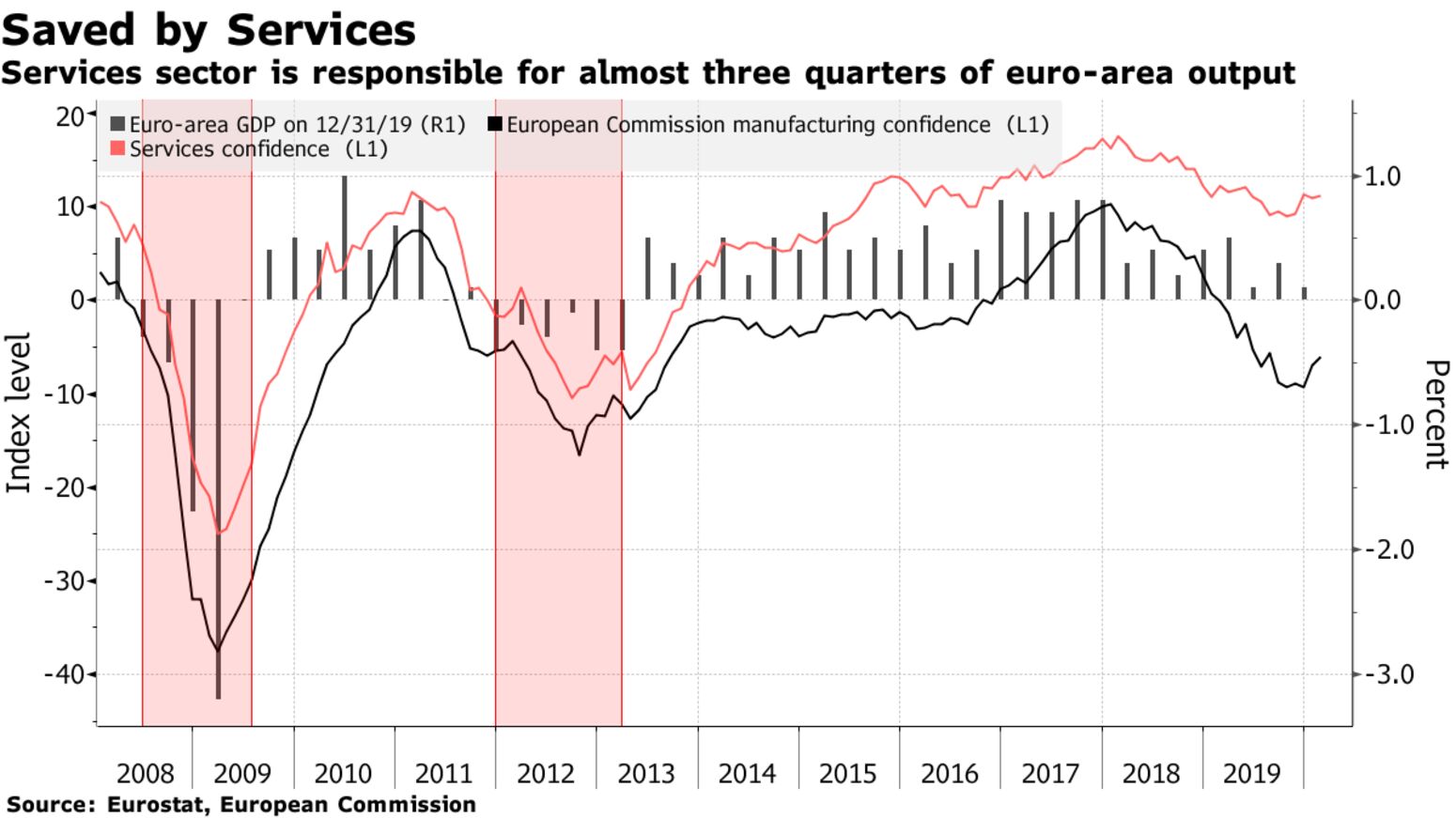There’s 1,000 miles and a body of water between Mark McGowan and the Italian epicenter of Europe’s coronavirus outbreak. He may as well be next door. His 16-room hotel, the Scholars Townhouse in Drogheda, north of Dublin, has seen a 60% drop in room revenue. The business market “just melted away overnight,” he said. “We have three people at reception and what struck me is the silence. You don’t hear the keyboards being hit anymore” the 37-year-old said. “It’s not looking good for the summer.”
The pandemic is dealing a crushing blow to the euro-area services industry, which makes up three-quarters of its economy and whose resilience was crucial to offset a manufacturing slump last year. With the outbreak forcing airlines to cancel flights, governments to suspend schools and impose nationwide lockdowns, the first recession since 2013 appears all but inevitable.

While Italy is the worst hit by the virus with 25,000 cases, the pain is fast spreading across the region’s biggest economies. France has closed non-essential businesses and Spain has declared a national emergency. Germany has yet to impose a national lockdown, but it may only be a matter of time. Berlin, the capital, has announced its own strict measures. In addition to schools, bars and restaurants being shuttered, entire sporting tournaments have also been suspended. Ireland’s government called off public events for St. Patrick’s Day, the country’s national holiday on March 17, an event worth millions of euros to the economy.
